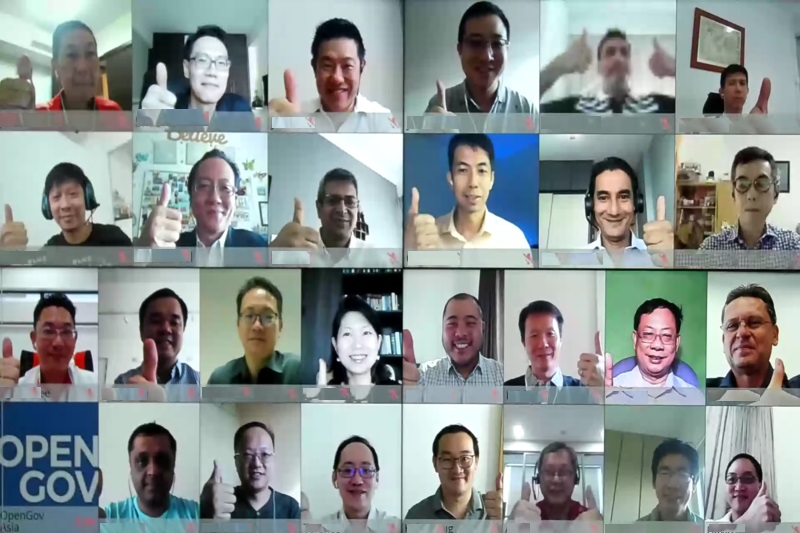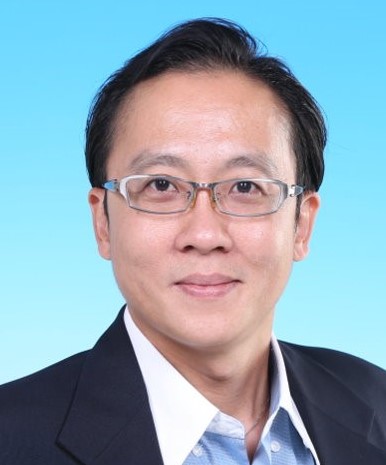
All businesses and organisations have been forced to change the way they conduct business over the last few months.
A colossal change for most organisations was transitioning their physical offices into a digital workspace.
With the compulsion of working from home, organisations had to undergo an accelerated digital transformation process.
This has made use of remote working technology and cloud-based solutions for the workplace see an exponential rise.
OpenGov Asia delivered its latest OpenGovLive! Virtual breakfast insight on 11 June to delve into the digital workspace shift in different organisations across industries.
The event saw 22 attendees from 17 different organisations in attendance. Eager to learn from each other and from experts, the delegates represented a plethora of sectors and services

The session was opened by Mohit Sagar, Group Managing Director and Editor- in-chief, OpenGov Asia.
Mohit explained that disruption of businesses by the virus was very fast and very sudden.
Most organisations and their workforce were quick to pivot and adapt to the new normal.
With this, the digital workspace has become the new norm and has made the previous “hardware” way of doing business almost redundant
Of course, the shift from hardware to software was not very smooth; there were numerous challenges that were overcome, and organisations learned along the way.
On this positive note, the session moved into a polling session to understand where organisations are in their journey towards a digital workspace.
The poll threw light on digital transformation of organisations. Some of the results were surprising, even for the respondents while other results were in line with expectations.
Over 65% of the delegates shared that half their employees would continue to work remotely for the next 6 – 12 months.
On the question of biggest gap that observed in organisations on Business Continuity Plans, the audience was equally divided among productivity (26%), security (26%), and management (26%).

The stage was then taken by Prem Pavan, Area Vice President- Sales & Services Asia for Citrix.
Prem began by acknowledging that organisations had to respond to a situation that was unprecedented in terms of scale and coverage. It severely hit a very fundamental resource of every organisation: people.
He shared Citrix’s observations about how organisations transitioned over the last few months. Prem talked about the four stages that organisations went through as they struggled to continue business:
- Stage 1: Crisis. Most of the organisations in this stage were preoccupied with employee safety and partial continuity of business.
- Stage 2: Extended. this stage featured a concern for security as volumes of data was out in the open to be accessed by multiple remote devices.
- Stage 3: Resilience. In this stage the companies are coping to keep up with their contractual obligations and getting engagement of employees back to how it was.
- Stage 4: The New Normal. In this stage companies are grappling to be creative with the tools, people, and productivity in place in the new normal.
Prem also shared the four gaps that companies had to overcome in the above 4 stages:
- Performance
- Security
- Management
- Productivity

Carlo Malana, Chief Information Officer from Globe Telecom took the discussion forward. He shared his organisation’s experience and learning as they managed to continue operations during the pandemic.
Carlo’s felt his organisational successful crises event management rested on two key pillars:
- A strong tech foundation pre-COVID was a major factor in Globe’s quick transformation to the digital workspace
- A cloud-based infrastructure and tools since 2013 enabled remote working quickly and easily
Obviously, they had to face various challenges that come on the way as they made the complete shift.
Logistically, they had to get staff the right kind of tools and equipment to allow them to continue work remotely.
They also had to invest in ensuring the wellness of employees while they worked remotely. Mental health and a feeling of isolation are key areas of concern for organisations in this new normal.

Dr. Michael Fung, Deputy Chief Executive, CHRO, and Chief Data officer from SkillsFuture Singapore then shared his insights from a policy making perspective. Dr. Fung’s presentation was based on SkillsFuture Singapore’s journey.
The focus and goal at SkillsFuture before the COVID hit were, in any case, digital transformation and upskilling the workforce. They have always felt it important to invest in upscaling workforce and digitisation in order to be prepared for the future.
The pandemic has accelerated and amplified the digital transformation process.
From a macro perspective, some industries have accelerated their pace towards these goals whereas some have seen a sharp drop as the pandemic hit.
There are a wide range of ways that the government has to help both the kinds of industries during this pandemic. The key is development of the people. They have launched a specific resource for this – SGUnited jobs and skills.
Dr. Fung’s presentation was followed by another interactive polling session.
On the question of current endpoint strategy during Business Continuity Plans, about 62% of delegates voted for devices issued by the organisation.
A delegate from government sector shared that security of data is a huge concern in public organisations. Sensitive data is more prone to a breach if self-owned devices come into play. Moreover, privately owned devices can be more expensive to operate.
There was a mixed response from the delegates on the question of what the most important factor for a remote and resilient workforce would be. The group was equally divided between proper work tools (29%) and digital and data security (29%).
One senior executive from telecom industry shared his take: an organisation can still function with the basic work tools, but digital security is non – negotiable. Lack of security can put the whole business at risk.
On the final discussion point about the primary outcome from the current situation, there was an interesting perspective from a delegate from education sector.
The delegate shared that technology simplification is the primary outcome they are looking for. He shared that more user-friendly tools will enhance employee engagement and retention. This will naturally make adapting to the new norm easier for an institution.
The session came to with closing remarks from Prem. He thanked all the delegates and appreciated their optimism to look at opportunities during crisis.
The Virtual Breakfast Insight went a long way to confirm that an Employee/Citizen/People-first outlook must be the basis for what organisations do during crises.
The delegates left having been empowered by new insights and perspectives to deal with the new normal: the creative and intelligent digital workspace.
















